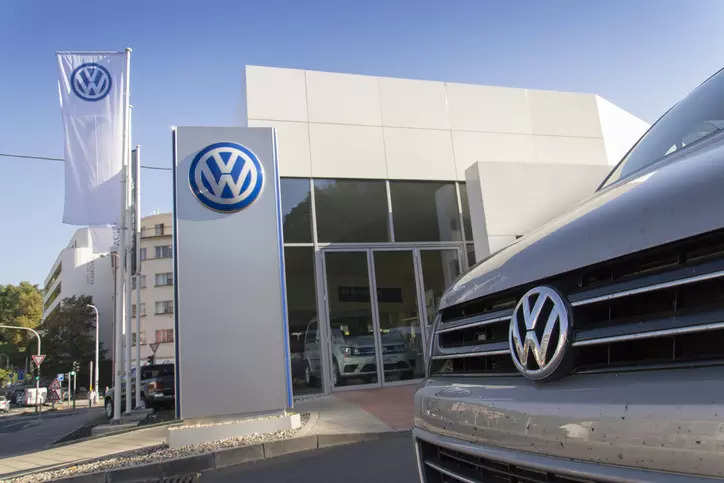
Volkswagen AG raised investment plans in Rivian Automotive Inc. by USD 800 million, signalling its commitment to the US partner even as electric-vehicle demand softens and the incoming Trump administration threatens to curtail supportive policies.
The companies also named leaders for their multibillion-dollar joint venture and showcased a prototype EV. The spending may ease concerns about Rivian’s cash burn and give the German carmaker access to its US partner’s software technology – an area where VW has stumbled.
Rivian’s stock surged 24% on Wednesday to USD 13.10 as of 9:45 a.m. in New York. Volkswagen shares fell 3.3% as of 3:45 p.m. in Frankfurt.
Both companies in June agreed to develop battery-powered vehicles together, with VW expected to invest as much as USD 5 billion into Rivian.
Their JV, known as Rivian and VW Group Technology LLC, will be led by co-chief executive officers Wassym Bensaid, Rivian’s chief software officer, and Carsten Helbing, VW’s chief technology officer, the companies said late Tuesday. The co-CEOs will lead a dedicated group of about 1,000 engineers from both companies.
“This is an acceleration of our plans for the future,” Bensaid said in an interview at Rivian’s Palo Alto office.
Volkswagen aims to launch vehicles in 2027 with technology fine tuned by the JV. The companies also aim to develop an all-new software-defined vehicle with more advanced technologies, which they ultimately aim to license to other automakers.
The prototype shown to a small group of reporters in Palo Alto integrates Rivian’s software-based vehicle architecture into an unmarked VW test vehicle, which Bensaid said was outfitted by the JV’s engineers in a 12-week period.
The venture with Rivian may prove critical for Volkswagen as the manufacturer struggles despite massive investment. In the aftermath of the 2015 diesel scandal, Europe’s largest carmaker laid out what was arguably the industry’s most ambitious EV push under then-CEO Herbert Diess. But buggy software delayed key electric models, contributing to his ouster in 2022.
Faced with waning EV demand in Europe and intensifying competition in China, where buyers gravitate toward local models, VW is currently considering large-scale cost reductions in Germany.
Helbing, who will also serve as chief operations officer of the venture, said the technology will be easily translatable to commercially available Volkswagen models at a similar pace. He added that kind of accelerated decision-making and development timeframe is a side benefit from the collaboration with a smaller and more nimble partner like Rivian.


